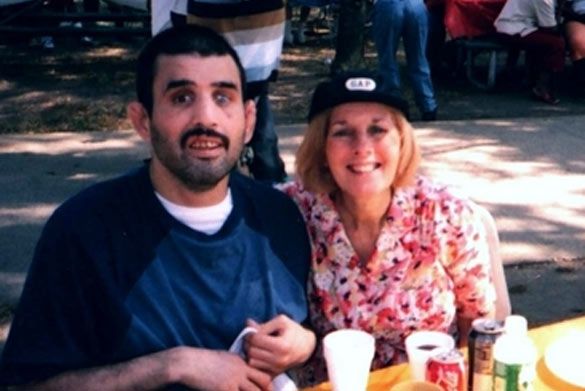Bensonhurst Couple Fights To Keep Home For Autistic Son

A Bensonhurst couple is fighting to save the last-resort home of their severely autistic son, who lives in one of the state’s few remaining housing facilities for the developmentally disabled that is now slated for closure.
Anthony and Mary Ann Cosentino are pleading with the state to reverse a plan that would shutter the Brooklyn Development Center in East New York, which has been their son’s home for the last 35 years.
Home Reporter reports:
[Their son] John, diagnosed with severe autism at the age of three, requires constant supervision and first came to BDC at age 14 with acute behavioral problems including aggression, pica (the eating of inedible items) and self-injury. BDC’s 24-hour patient-care and college campus-sized site, his parents said, was perfect for him.
“Many residents like John have severe behavioral problems through no fault of their own,” his father told this paper, adding that BDC, established in 1973 to replace the infamous Willowbrook, was the only facility willing to accept John, also blind in his left eye. “He’s used to a routine and he’s used to the same staff. Many of them have been with him for over 20 years.”
The state’s Office for People with Developmental Disabilities announced last July that they would be shutting down the center in December 2015, one of four centers to be axed.
New York has been shutting down such large-scale institutions since closing Willowbrook in 1987, a Staten Island institution that sparked public outcry for its squalid conditions and abusive practices. In the years since, the prevailing sentiment for special needs care is that better service can be provided in smaller setting and more personalized care. The latest closures are hailed in the state’s press release by disability advocates and some family members.
But for the Cosentinos, the institution was an effective provider that met their son’s extreme needs. It will likely mean a change in those caregivers he’s had for so many years, but also a change in setting that could stress and upset their son.
In a Brooklyn Eagle article, Consentino rattled off the benefits of the current program, and the drawbacks of the group homes their son will eventually be pushed into.
“I’m worried about my son’s safety if we have to move him. BDC is a good setting for him. They do a good job of taking care of him there. BDC has nursing 24/7. He gets one-to-one coverage. It’s a nice atmosphere, too. It looks like a college campus,” Cosentino told the Brooklyn Eagle.
… “It looks like the state wants to get out of the business of taking care of the developmentally disabled. This has hurt me to the core,” Cosentino told the Eagle. “These small group homes sound nice, but they don’t have the staffing and they don’t have people trained to take care of someone with severe problems. What are they going to do if a resident gets up in the middle of the night and starts banging his head against the wall?”
The state agency that oversees such programs said the closure is the right move for most residents:
“OPWDD believes that the majority of individuals can live in the community with the right services and supports. Individuals who continue to need more intensive treatment will receive necessary services in the setting most appropriate for them, with the goal of fully integrated community supports when it is clinically appropriate,” the statement reads.
The Consentinos have launched a Change.org petition in hopes of convincing the state to keep the facility open.




